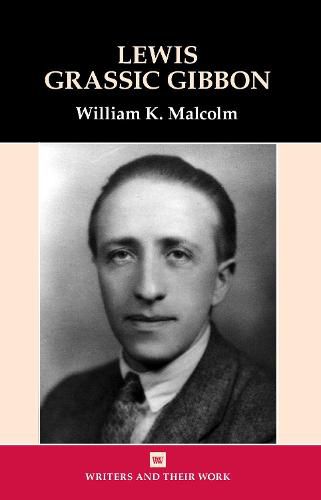Readings Newsletter
Become a Readings Member to make your shopping experience even easier.
Sign in or sign up for free!
You’re not far away from qualifying for FREE standard shipping within Australia
You’ve qualified for FREE standard shipping within Australia
The cart is loading…






Lewis Grassic Gibbon galvanised the Scottish literary scene in 1932 with Sunset Song, the first novel of the epic trilogy A Scots Quair, which drew vividly upon his upbringing on a croft in Aberdeenshire to capture the zeitgeist of the early twentieth century and provide a compelling moral mandate for social and political change in the inter-war period. Yet his literary legacy of seventeen volumes produced in his short life, under his own name of James Leslie Mitchell as well as his Scots pseudonym, testify to his versatility, as historian, essayist, biographer and fiction writer. Set against an informed conspectus of the author’s life and times and incorporating substantive new source material, this study highlights his core principles, rooted in his rural upbringing: his restless humanitarianism and his veneration for the natural world. Subsequently, he is seen as a combative writer whose fame in recent years - as cultural nationalist, left-wing libertarian, proto-feminist, neo-romantic visionary and trailblazing modernist - has carried far beyond his native land. In tune with the intellectual climate of the inter-war years, Gibbon emerges as a passionate advocate of revolutionary political activism. In addition, as a profound believer in the overarching primacy of nature, he stands as a supreme practitioner in the field of ecofiction. Coupled with his modernist accomplishments with language and narrative, this firmly establishes him among the foremost fiction writers of the twentieth century - uniquely, one whose achievement has consistently won both critical and popular acclaim.
$9.00 standard shipping within Australia
FREE standard shipping within Australia for orders over $100.00
Express & International shipping calculated at checkout
Lewis Grassic Gibbon galvanised the Scottish literary scene in 1932 with Sunset Song, the first novel of the epic trilogy A Scots Quair, which drew vividly upon his upbringing on a croft in Aberdeenshire to capture the zeitgeist of the early twentieth century and provide a compelling moral mandate for social and political change in the inter-war period. Yet his literary legacy of seventeen volumes produced in his short life, under his own name of James Leslie Mitchell as well as his Scots pseudonym, testify to his versatility, as historian, essayist, biographer and fiction writer. Set against an informed conspectus of the author’s life and times and incorporating substantive new source material, this study highlights his core principles, rooted in his rural upbringing: his restless humanitarianism and his veneration for the natural world. Subsequently, he is seen as a combative writer whose fame in recent years - as cultural nationalist, left-wing libertarian, proto-feminist, neo-romantic visionary and trailblazing modernist - has carried far beyond his native land. In tune with the intellectual climate of the inter-war years, Gibbon emerges as a passionate advocate of revolutionary political activism. In addition, as a profound believer in the overarching primacy of nature, he stands as a supreme practitioner in the field of ecofiction. Coupled with his modernist accomplishments with language and narrative, this firmly establishes him among the foremost fiction writers of the twentieth century - uniquely, one whose achievement has consistently won both critical and popular acclaim.